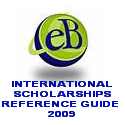General background:
The Netherlands Institute of Ecology (NIOO) is a top research institute of the Royal Netherlands Academy of Arts and Sciences (KNAW). It comprises three centers: the Centre for Estuarine and Marine Ecology (CEME) in Yerseke, the Centre for Limnology (CL) in Nieuwersluis, and the Centre for Terrestrial Ecology (CTE) in Heteren. Mission of the NIOO (http://www.nioo.knaw.nl) is to carry out excellent fundamental and strategic research in ecology.
The department of Spatial Ecology of the CEME ( http://www.nioo.knaw.nl ) and the department of Community and Conservation Ecology Group at the University of Groningen ( http://www.rug.nl/biologie/onderzoek/onderzoekgroepen/cocon/people/index ) study how a fundamental understanding of i) interactions between organisms and their physical environment (i.e., how do currents and waves determine the living conditions of organisms and vice versa) and ii) the interactions between species (i.e., who eats what and how does that affect populations) can be used for sustainable management of salt marshes.
Research topic / Job description:
Salt marshes are important habitats along the Dutch coast, providing feeding grounds for migratory birds. Salt-marsh development is however increasingly threatened by sea-level rise and overgrazing by increasing goose populations. Salt marshes that are not grazed by geese are well able to keep up with sea-level rise by reducing hydrodynamic energy and trapping sediment within their tall vegetation. It is unknown how shortening of the vegetation by grazing reduces the ability to trap sediment and keep up with sea-level rise. Trapping sediment enhances the fertility of the marsh, and thereby canopy height. Too tall vegetation hampers bird grazing. Hence, implications of sea-level rise for the ability of salt marshes to continue to support large populations of grazing birds are also unknown thus far. Present project will unravel how the interacting effect of marsh vegetation, hydrodynamics, sediment trapping and bird grazing affect the future development of
salt marshes. This will be done by combining ecological and physical field studies, flume experiments and hydrodynamic modeling by two PhD students:
PhD 1 will study experimentally how (1) grazing intensity, (2) sediment fertility and (3) patchiness in the landscape affect the mechanistic relationship between vegetation characteristics and sedimentation/erosion processes. (For information on PhD-position 1, please contact Prof.dr. j.p.bakker@rug.nl)
PhD 2 will study experimentally the large-scale hydrodynamic and sedimentation processes and incorporate the results in a spatially explicit hydrodynamic model that can be used to predict long-term, large-scale dynamics of salt marshes in relation to grazing intensity, sediment fertility and patchiness.
We are currently looking for a candidate for PhD-position 2.
Requirements for PhD 2:
We are looking for a biologist or physical geographer or (civil) hydraulic engineer with a strong interest in the interaction between biological and physical processes as may occur in salt marshes. The candidate must be able to design and carry out experiments, and to analyse the results. Experience with mathematical modeling is a strong asset. Management skills and a good feeling for statistical interpretation of the results is essential to the job. Candidates should be capable to clearly report on their results, both orally and in writing. Candidates have in depth knowledge of their own research area, and are willing to extend this knowledge in other research areas that are crucial to the job. Supervision will be given by a multidisciplinary team of scientists.
The research should result in the successful defense of a PhD thesis.
Appointment:
The appointment will be initially for 1 year, which will be extended to 4 year provided that the applicant has proven to be well suited for the job. The project will start fall 2008.
Salary:
The gross salary starts at ¤ 2000,- per month in the 1st year, and will gradually increase to a maximum of ¤ 2558,- per month in the 4th year.
Location:
The Centre for Estuarine and Marine Ecology (NIOO-CEME) in Yerseke, The Netherlands .
Information:
Information and a detailed project description can be obtained by e-mail, via a.visser@nioo.knaw.nl.
Applications:
Written applications for PhD 2, vacancy number CEME-RE-08417, should be sent before 9th July 2008 sent to Prof. Dr. C.H.R. Heip, director NIOO-CEME, P.O. Box 140, 4400 AC Yerseke, The Netherlands or by e-mail to a.visser@nioo.knaw.nl.
We cannot control the directions of the wind, but may be we can adjust our sails
Handoko Adi Susanto
Department of Environmental Changes
Kyushu University
Fukuoka, Japan






Post a Comment